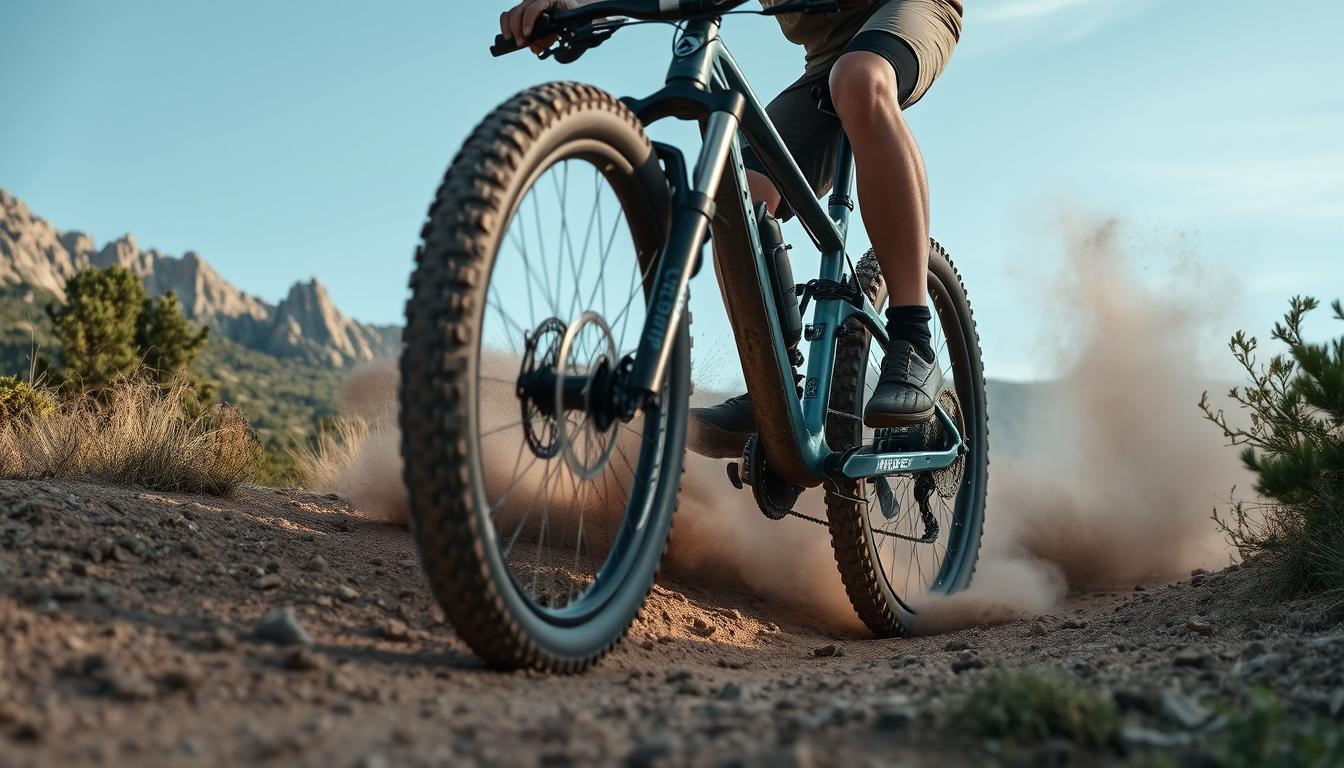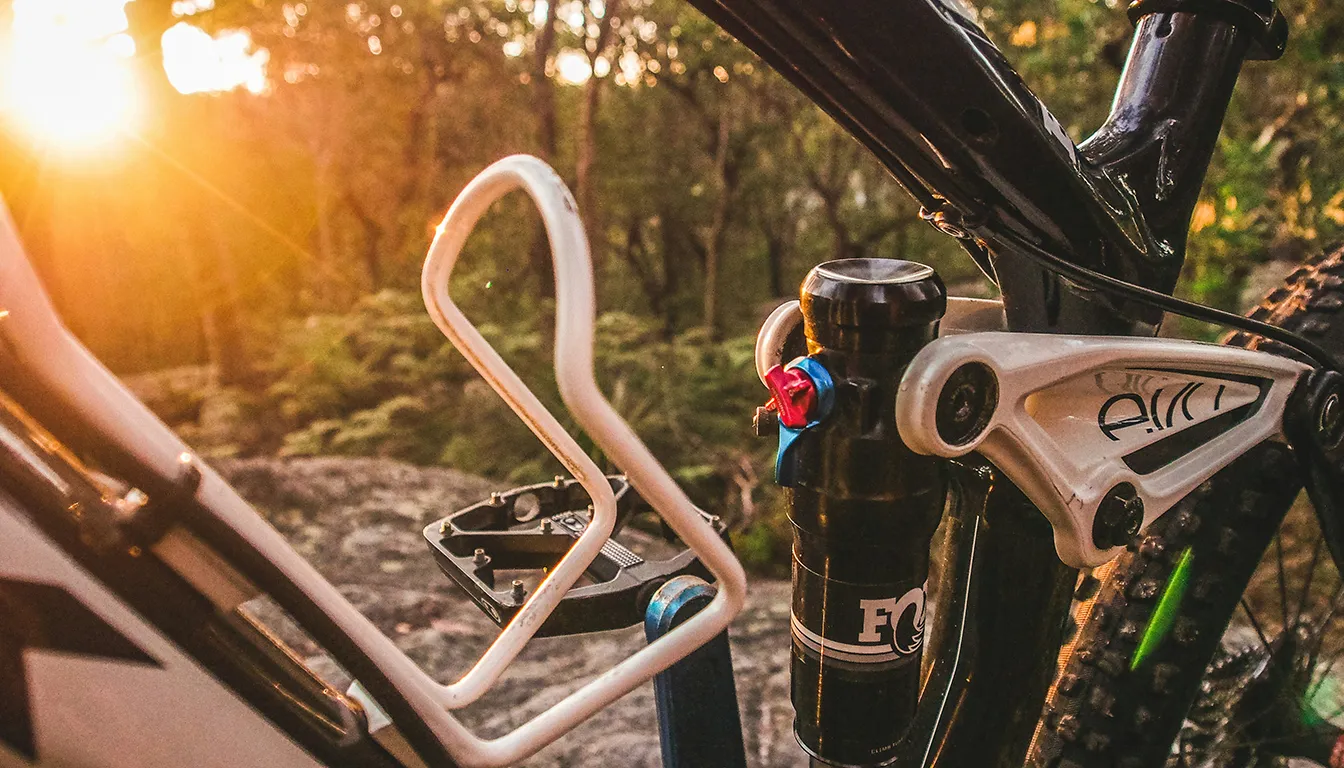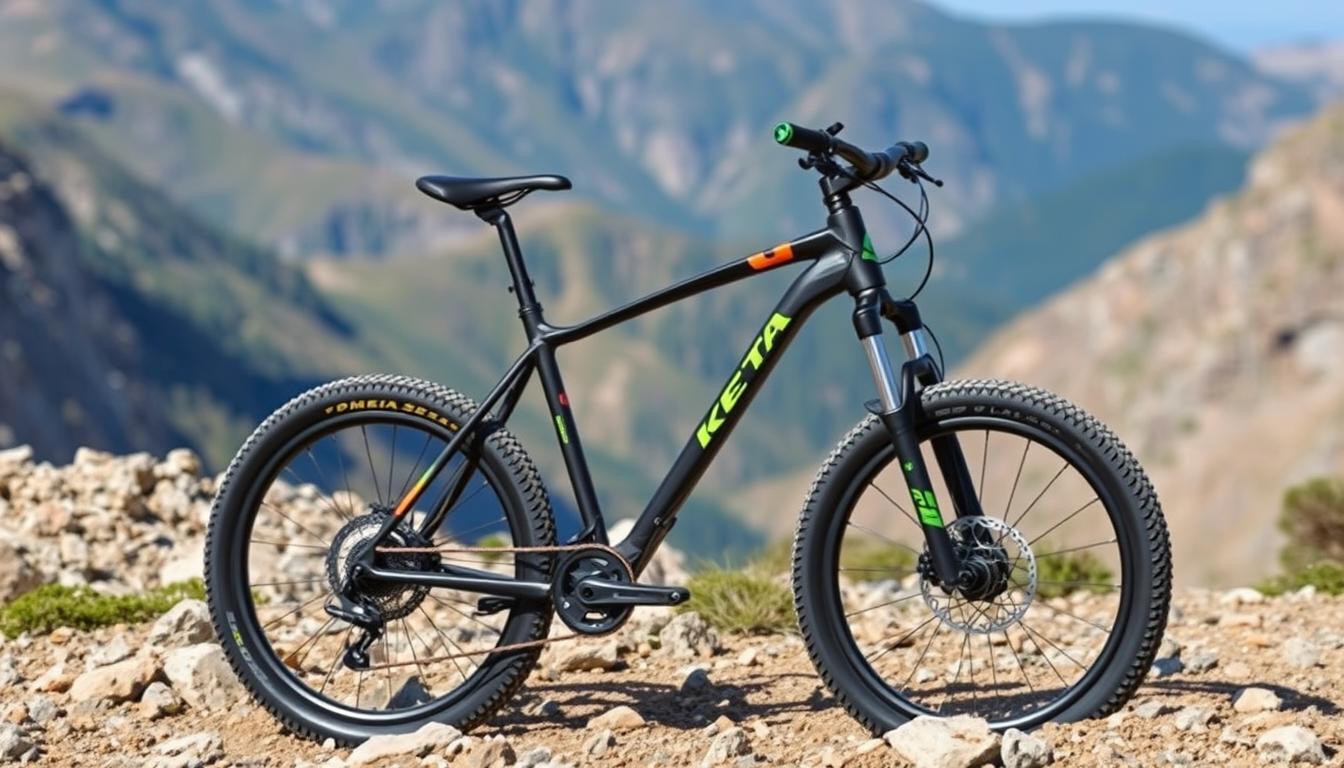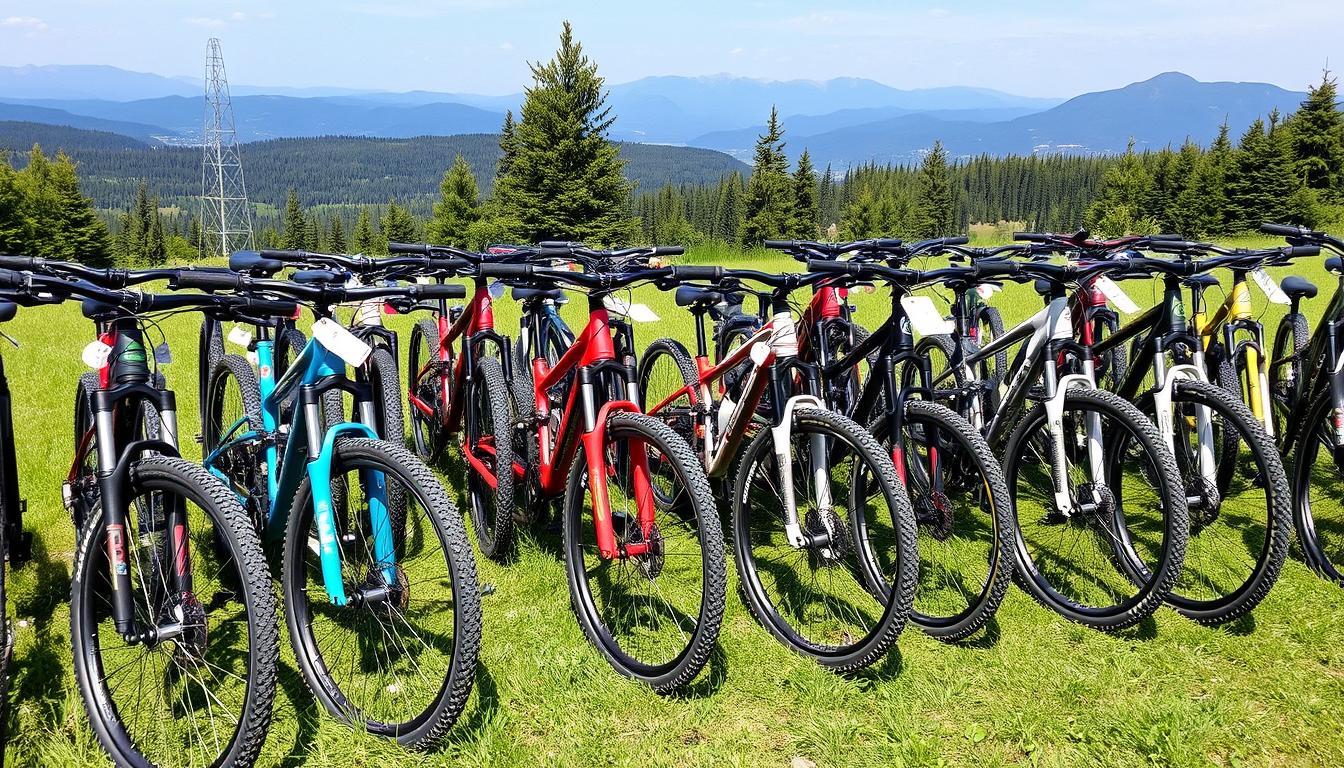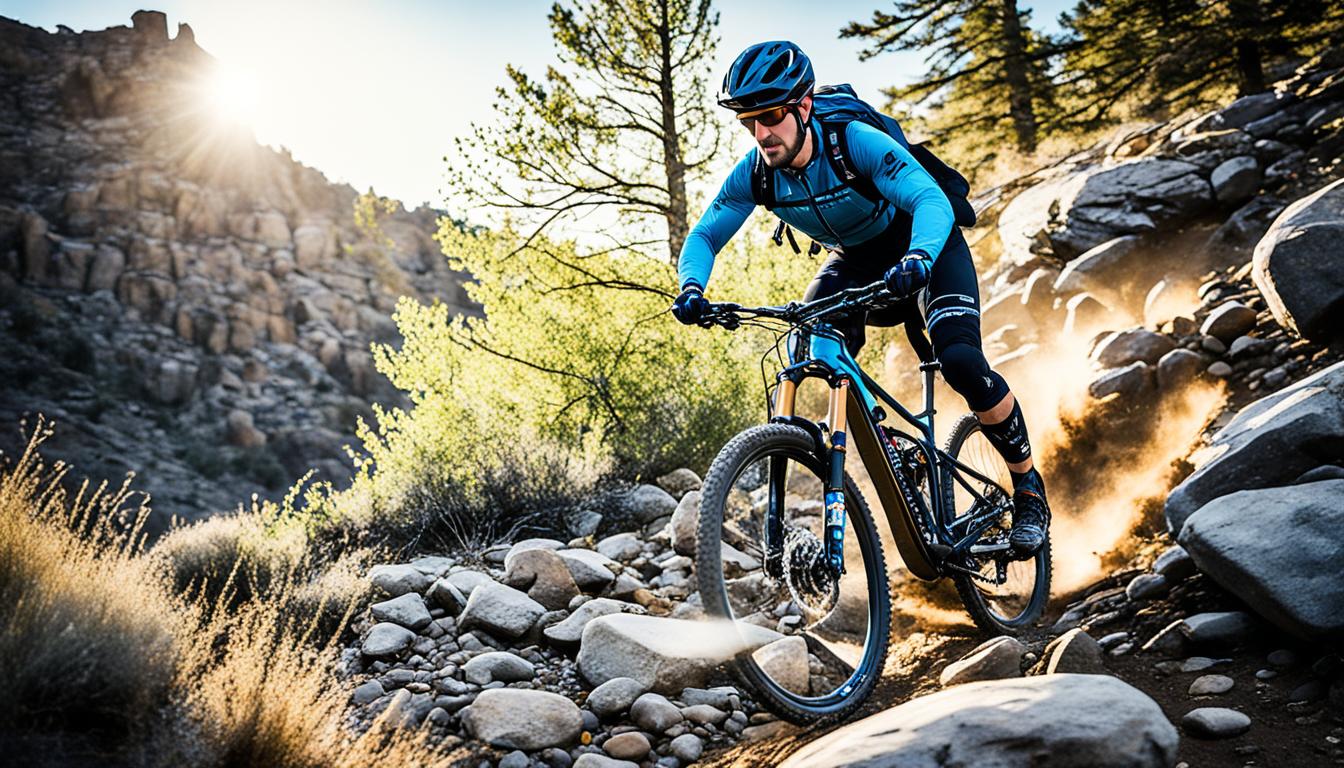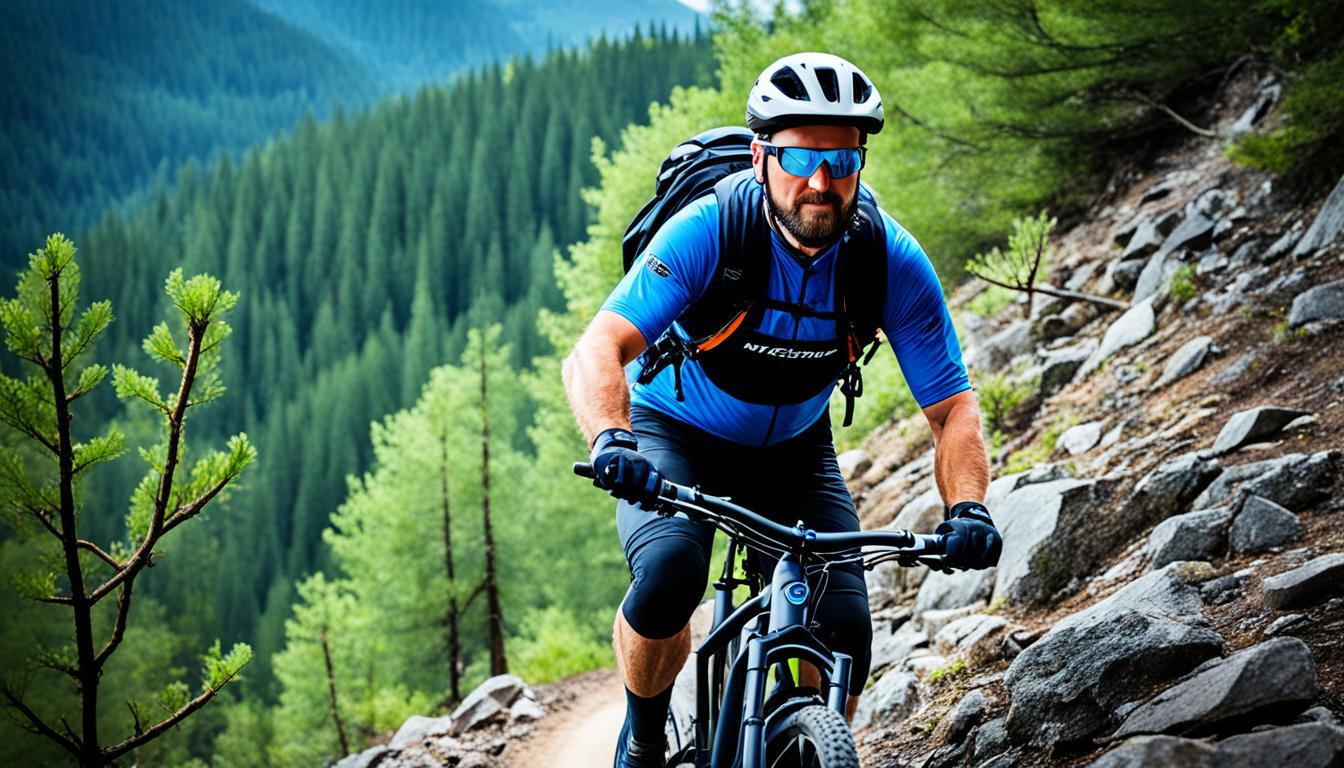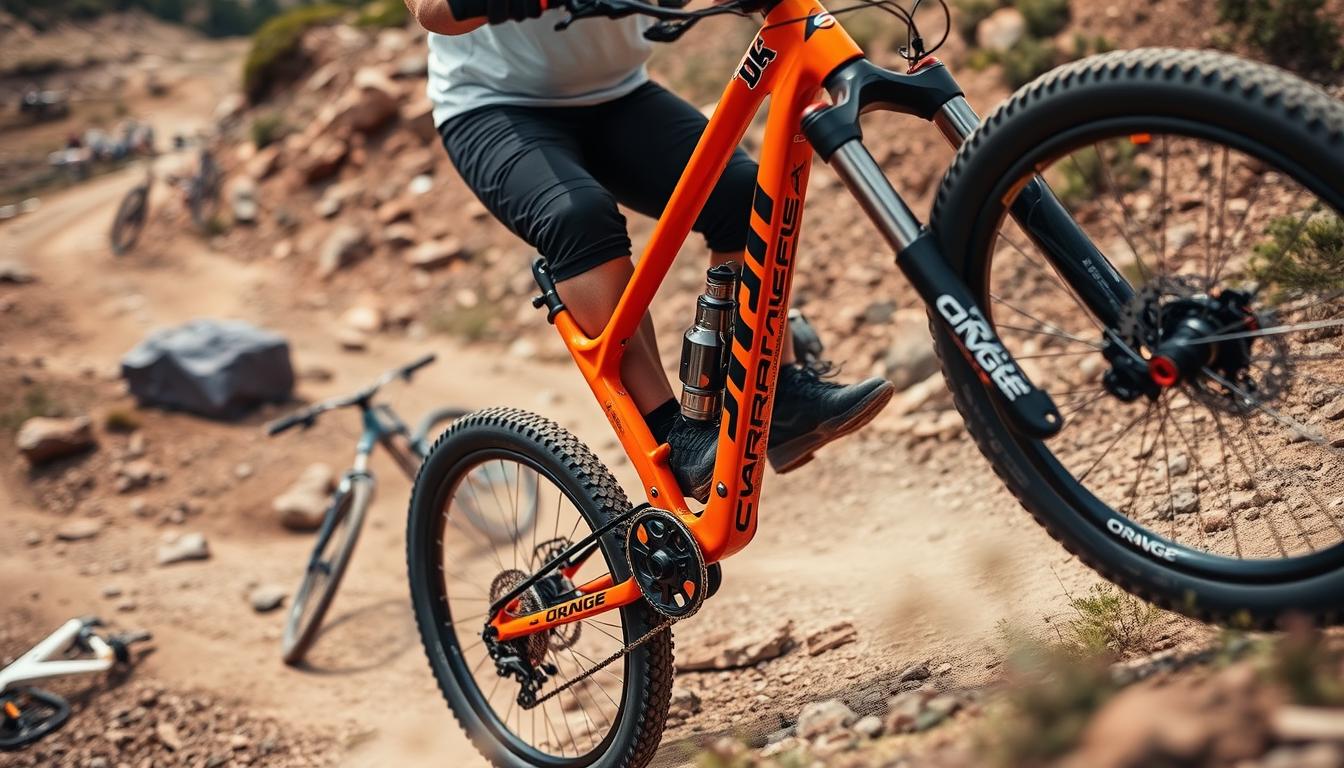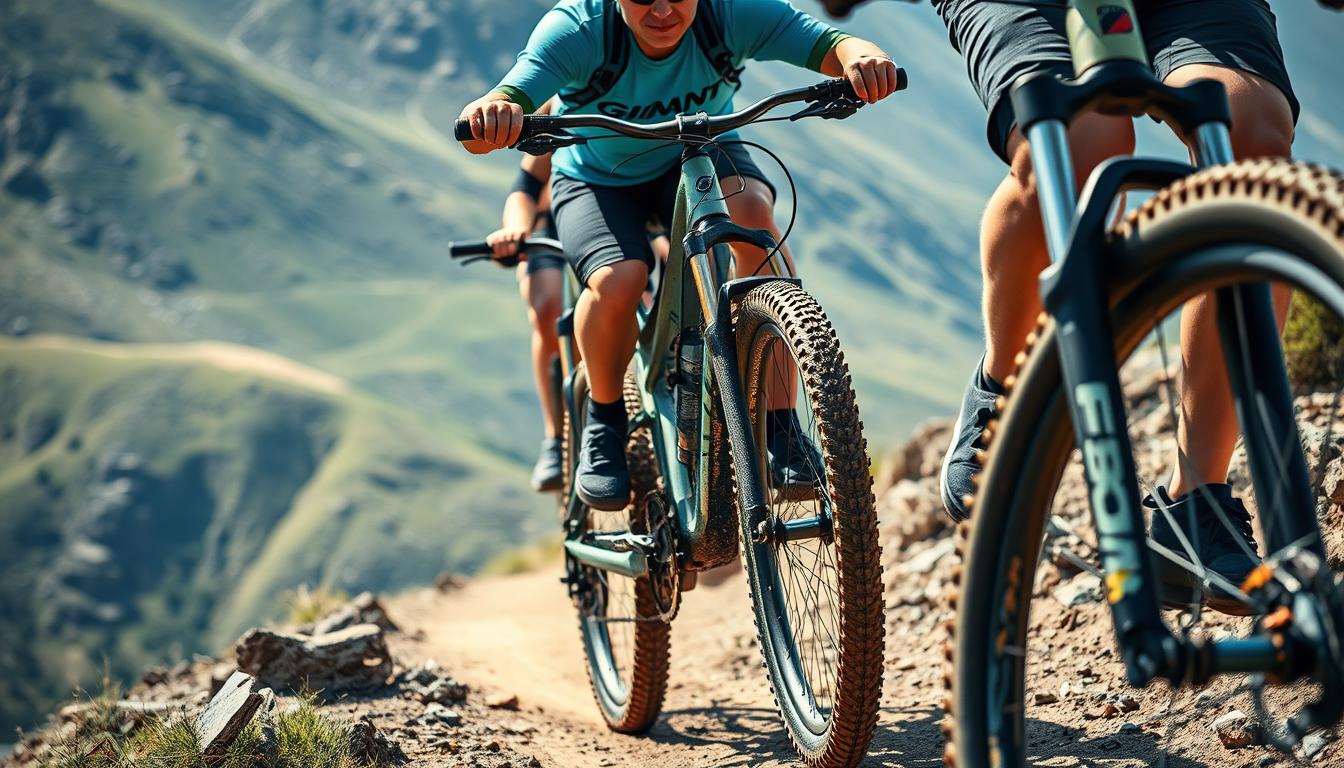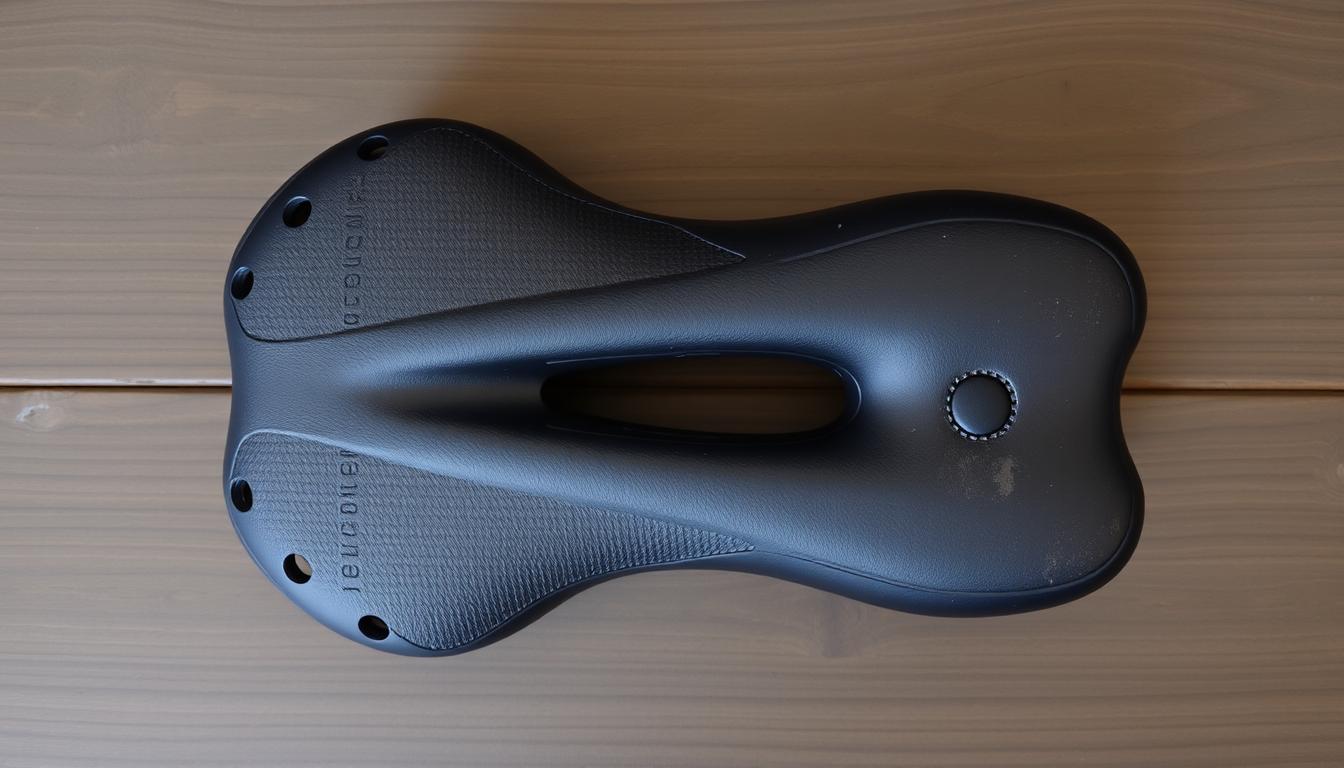Starting your journey with mountain biking brings excitement. But, do you need a full suspension mountain bike? These bikes handle rough terrains better, giving you a comfy and controlled ride. Advances in bike tech mean smoother travels. Yet, your personal likes and expected riding conditions are key in this choice.
Mountain biking has transformed, with full suspension bikes becoming popular for their top-notch performance across different terrains. Knowing the differences between bike types helps make a good choice. Each bike suits various riding styles differently. To help choose your ideal mountain bike, check out mountain bike reviews. Here, you’ll find details on beginner-friendly options.
Understanding Mountain Bike Suspension Types
Understanding different mountain bike suspension types is key for a better ride. Choosing between hardtail and full suspension bikes affects your performance. It matters a lot on different terrains.
Hardtail vs Full Suspension
A hardtail bike has a rigid rear, making it simple and efficient on smooth grounds. It’s great for easy trails or cross-country rides. On the other hand, full suspension bikes have front and rear shocks. They offer more comfort and control on rough paths. This setup absorbs impacts well, making rides smoother on tough trails.
How Suspension Works
To understand how bike suspension works, know it absorbs shocks from bumps, keeping tyres on the ground. This lessens fatigue and betters handling. Modern bike suspensions vary from 80-200mm travel, tailored for different terrains. Knowing how to adjust compression and rebound improves your ride. For tips, check out how mountain bike suspension works.
Setting up your bike’s sag is important, about 20-30% for rear shocks and 15-25% for forks. This setup helps smooth out rides on varied trails. For beginners wanting to know more about bikes and their suspensions, visit a beginner’s guide.
The Advantages of a Full Suspension Mountain Bike
Choosing a full suspension mountain bike brings many perks, especially on tough terrains. Their ability to enhance comfort on uneven paths stands out as a key advantage of full suspension mountain bikes. Thanks to superior shock absorption, the effects of bumpy paths are lessened. This lets riders easily tackle varied landscapes.
Improved Comfort on Rough Terrain
Full suspension bikes smooth out shakes and bumps. This makes them perfect for riders who value comfort on rough trails. These bikes help prevent tiredness during long rides by soaking up much of the roughness encountered on jagged terrains.
Enhanced Traction and Control
The extra traction and control full suspension bikes offer is remarkable. Their design ensures wheels stay on the ground, even on slippery or rough tracks. This improves uphill climbing and gives riders the courage to go up steep hills and down sharp drops confidently.
Boosted Confidence on Technical Trails
Riders feel more confident on tricky paths with full suspension bikes. These bikes handle obstacles better, allowing for quicker cornering and descending than hardtails. This assurance motivates bikers to take on complex trails, enhancing their skills. For a deep dive into mountain biking benefits, see this detailed guide.
Evaluating the Drawbacks of Full Suspension Mountain Bikes
Full suspension bikes have a clear allure, but it’s key to know the downsides. They’re well-designed and attractive, yet they have drawbacks affecting the ride.
Higher Cost and Maintenance Requirements
Many riders think a lot about the cost. Full suspension bikes usually cost more, with prices starting from £1,500 to £2,000 for the basic models. This price includes the complex build and extra parts. Also, full suspension bikes need more upkeep. Regular checks are needed due to the complex suspension system, raising the maintenance costs.
Increased Weight Compared to Hardtails
The bike’s weight is crucial for performance and control, especially uphill and on tricky paths. Full suspension bikes are heavier than hardtails by about 1 to 2 kg. This extra weight may reduce agility and affect how the bike handles, especially in tight spots where quick movements are needed.
Efficiency on Smooth Terrain
If you mainly ride on smooth trails, full suspension might not offer much benefit. Hardtails are lighter and work better on flat ground, giving a more direct feel. This means full suspension bikes might not be the best for riders who value speed and quick response on smoother trails.
When is a Full Suspension Mountain Bike the Right Choice?
Choosing the right mountain bike is key to a fun ride. Knowing when to pick full suspension bikes helps, especially in certain situations where they perform best.
Riding Rough, Rocky Trails
If you’re going over tough, rocky paths, a full suspension mountain bike is excellent. It lessens the shock from bumpy ground. This improves stability and control. Riders find it easier to move over obstacles like rocks and roots, important for those who like riding on demanding terrains.
Personal Comfort and Injury Considerations
Your riding comfort matters a lot for enjoying biking. Full suspension bikes are top-notch for comfort. This makes them a good fit for people healing from injuries or who need a gentle ride. Their shock absorption helps reduce body stress, allowing for longer rides with less pain.
Preference for Speed and Confidence
For bikers who love speed and feeling confident on tricky trails, full suspension bikes are a boon. They provide better grip and stability for quick cornering and speedy downhills. This mix of qualities boosts confidence during challenging trips, making them a perfect pick for many bikers.
Conclusion
Finding the right mountain bike is crucial for any rider. When comparing hardtail and full suspension bikes, each type has its pros and cons. Full suspension bikes are great for rough terrains. They provide more comfort and control, making challenging trails easier to handle. Their advanced systems help absorb shocks, reducing body impact and fatigue. This improves your ride.
However, full suspension bikes might not be for everyone. When choosing a mountain bike, think about your riding style and what you enjoy. Some may prefer the control and traction of full suspension on tough trails. Others might like the lightness and simplicity of a hardtail for smoother paths. Budget also plays a role in this decision.
The best bike for you depends on what you prefer and how you like to ride. Trying both types of bikes is a good idea. This helps you see which one meets your needs the best. Think about where you’ll ride and your goals. With this information, you can pick a bike that will make mountain biking even more enjoyable for you.
FAQ
What is a full suspension mountain bike?
A full suspension mountain bike comes with shocks at both the front and the back. This design helps the bike perform better, especially on bumpy and uneven grounds. It’s perfect for those who love riding on challenging mountain trails.
How does a full suspension bike compare to a hardtail?
Hardtail bikes have a fixed rear end and no shock absorber. They work well on flat surfaces, offering simplicity and efficiency. Meanwhile, full suspension bikes provide better shock absorption. This keeps the tyres in touch with the ground for more control on rough paths.
Why is suspension important in mountain biking?
Suspension systems help soak up bumps from rough terrains. They reduce tiredness in riders and improve bike handling and control. This is especially useful on difficult ground like rocky paths.
What are the main advantages of full suspension mountain bikes?
Full suspension bikes enhance comfort by absorbing shocks well. They provide better grip on shifting grounds and boost confidence when turning corners or going downhill fast. They’re ideal for tough trails, reducing the chance of getting tired or hurt.
Are there any drawbacks to full suspension mountain bikes?
Yes, there are some downsides. Full suspension bikes can be expensive and need more upkeep. They’re often heavier than hardtails. If you usually bike on smooth trails, a full suspension might not be worth the extra cost.
When should I consider a full suspension mountain bike?
Consider a full suspension bike if you often ride on rough, rocky trails. It’s also good for those with previous injuries needing extra comfort. Or if you like fast, skilled riding on tricky terrains, where grip and control matter a lot.
What should I consider when choosing between a hardtail and a full suspension bike?
Think about how you ride, where you ride, your budget, and what you prefer for comfort and performance. Trying both bike types can help you decide which meets your mountain biking needs best.
